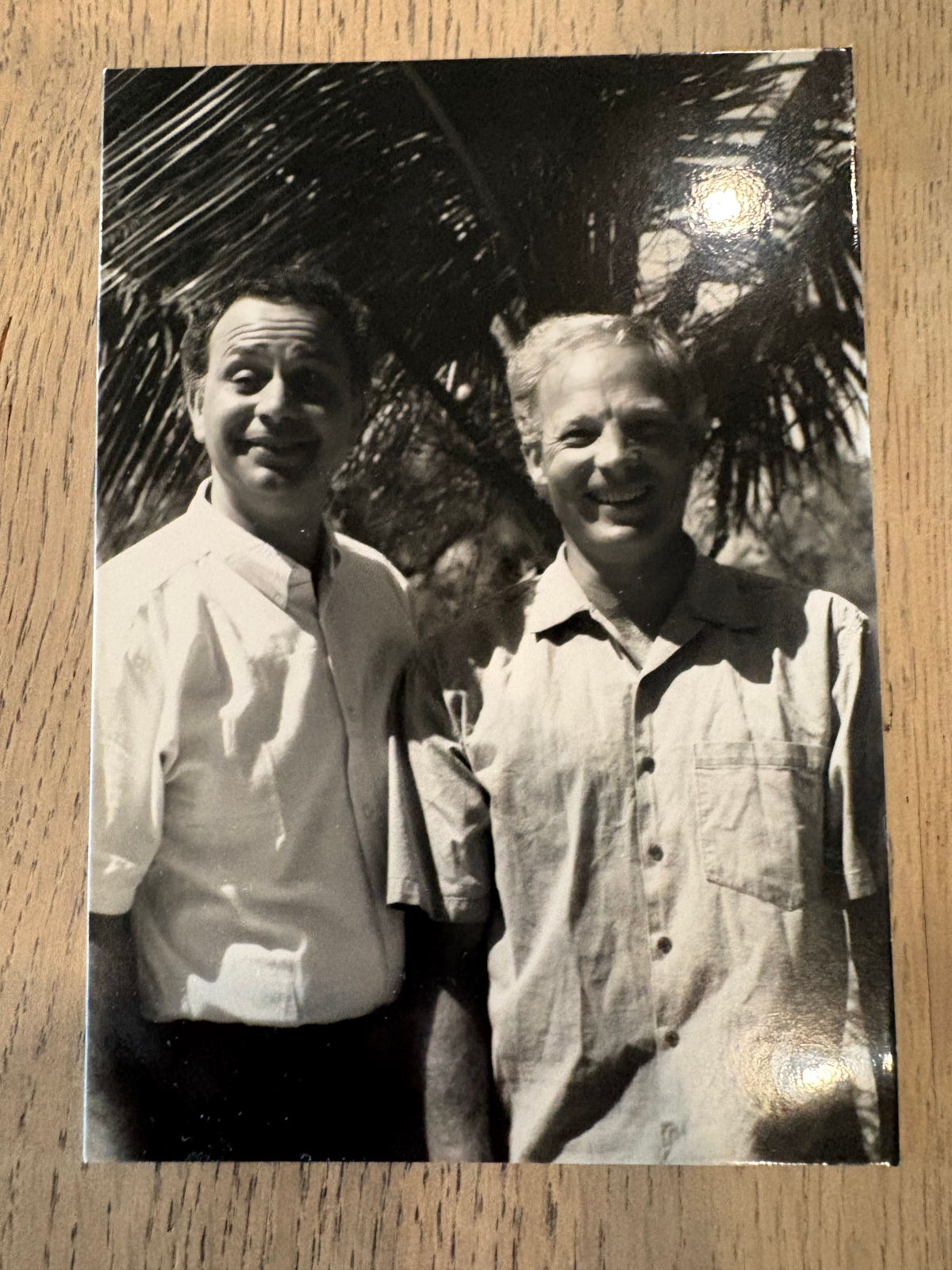“Most of our assumptions have outlived their uselessness.” Marshall McLuhan
I’m writing this post on a milestone birthday. I’m now in my ninth decade of life on this planet. One friend of over 50 years sent a picture of our younger years and wrote,
“These were the days we thought everything was possible. We assumed we would sing and dance forever and a day. The days have grown short, but the memories live forever. Nobody and nothing can take them away. Friendship is a rare and precious gift.”

Yes, our assumptions about life may change as we grow older, but feeling accepted and connected makes every moment in life a gift. Hopefully, we can all keep singing and dancing in our own ways. At least, that’s the assumption I’m holding onto.
Some assumptions, however, need to be challenged. Presumptions pose perilous pitfalls.
Assumptions are the mental shortcuts we take to navigate the complexities of life, and they can be incredibly useful.
They allow us to make quick decisions and avoid cognitive overload.
Unexamined assumptions, however, the beliefs taken for granted without critical thought, can lead to misunderstandings, conflict, and even tragedy.
This post will explore the perils of three specific assumptions: the belief in one’s own infallibility, the disregard for unintended consequences, and the expectation of passive acceptance from others. Then, I will discuss how those assumptions are playing out in today’s context.
First, the assumption that “I must be right” is a particularly insidious form of cognitive bias. Confirmation bias predisposes us to seek out and interpret information that confirms our existing beliefs while dismissing contradictory evidence. This tendency reinforces the assumption of correctness, creating an echo chamber where our perspectives are never challenged. This can lead to flawed decision-making, particularly in situations where objective analysis is crucial. For example, in a professional setting, a manager who assumes their approach is the only correct one might ignore valuable input from their team, leading to project failure. Similarly, in interpersonal relationships, the assumption of righteousness can stifle communication and breed resentment. When we believe we are always right, we become less open to listening, learning, and acknowledging our own fallibility. This closed-mindedness can damage relationships and hinder personal growth.
Second, the assumption that our actions and words don’t have unintended consequences is equally perilous. We often operate with a limited understanding of the complex systems we are a part of, and our actions can have ripple effects far beyond what we initially anticipate. Senge, in his work on systems thinking, emphasizes the interconnectedness of everything, highlighting how seemingly small actions can have large, unforeseen consequences. For instance, a well-intentioned policy implemented without considering the perspectives of all stakeholders might inadvertently exacerbate existing inequalities. Similarly, a careless comment made without considering its potential impact could deeply hurt someone, even if that was not the intention. The assumption of inconsequentiality stems from a lack of empathy and a failure to appreciate the intricate web of cause and effect. Recognizing the potential for unintended consequences requires a shift towards a more holistic and considerate approach to decision-making, one that actively seeks diverse perspectives and anticipates potential repercussions.
Finally, the assumption that people will react to what we say and do without resistance or pushback is a recipe for conflict. We are all individuals with unique experiences, beliefs, and values. Expecting others to passively accept our opinions and actions is not only unrealistic but also disrespectful. This assumption often stems from a lack of perspective-taking and the ability to understand and appreciate the viewpoints of others. As demonstrated by research on social psychology, people have a fundamental need to be heard and understood. When their voices are ignored or dismissed, they are likely to resist, push back, and potentially become defensive. The assumption of passive acceptance can lead to communication breakdowns, strained relationships, and even escalated conflict. Challenging this assumption requires cultivating empathy, actively listening to others, and recognizing their right to disagree.
The literature contains volumes of books written around the theme of making wrong assumptions. For example, Oedipus Rex, written by Sophocles and first performed in Athens, Greece, around 429 BCE, tells about the fatal consequences of false assumptions. In this story, Oedipus is the king of Thebes and is determined to save his city from a plague. He consults the Oracle of Delphi, who tells him that the plague will only end when the person who murdered the previous king is found and punished. Oedipus thus sets out to find the murderer but ends up killing the king himself. We now have a wannabe king who believes in the Oracles of Silicon Valley and preaches about a plague that doesn’t exist. As a result of his assumptions and beliefs, he may succeed in killing the democracy he claims to be representing.
Another classic example, Pride and Prejudice by Jane Austen (1796), provides a more recent example of how bad assumptions can be hazardous. In this story, Elizabeth Bennett and Mr. Darcy are both guilty of making assumptions about each other based on their first impressions. Elizabeth believes that Darcy is proud and arrogant, while Darcy believes that Elizabeth is prejudiced and beneath him. If we substitute Democrats for Elizabeth and Trump for Darcy, we would have a modern-day version of this story. The only difference is that Democrats were right about Trump being proud and arrogant, and Trump was wrong in his judgments about people based on their social status, wealth, and degree of obsequiousness. In Jane Austen’s version, Darcy and Elizabeth realized, as they became more intimately acquainted, that both of them, in their first impression assumptions, were wrong. Incomprehensibly, we had the benefit of four years and plenty of evidence to challenge any assumptions we may have held about Trump and his MAGA followers, and yet 77 million people held onto the assumptions that we would be better off with another four years. Clearly, they didn’t anticipate the consequences of their fiercely held beliefs
In short, Trump’s basic assumption is that he can break the law, break the constitution, and break our democracy with his chaotic, careless, and cruel orders because of his arrogant sense of immunity and impunity. He believes he can get away with anything because no one has enough endurance, strength, or courage to stop his egregious behaviors. State attorneys general are challenging Trump’s assumptions, but it remains to be seen what happens with the appeals process and what the Supreme Court may ultimately decide. Hopefully, as Margaret Renkle suggests, “He may break our hearts, but we can’t let him break our will.
To me, assumptions are driven by righteousness, solipsism, and ignorance. It feels like all three of those causes are behind the whole MAGA movement in one combination or another. Since Congress has shown a complete lack of spine, it appears that our future depends on the courts, collective resistance, and community engagement.
But let’s not ignore our own assumptions. We don’t want to be among those who blithely assume that “this too will pass; we just need to see how it all plays out.” History has not been kind to those who go along to get along.
I was recently reminded how untrustworthy and useless my own assumptions are. After watching the compelling Super Bowl performance by Kendrick Lamar, I assumed I pretty much understood the message. Then I started reading about what was really going on in that carefully choreographed act. I discovered, as an old, white guy, how little I understood about the syntax, the symbolism, and the substance of Lamar’s brilliant performance. It was stunning to me how much I had missed—pretty much everything.
As I enter my 80’s, I’m not assuming that I will see how this will all play out. All I can offer are seasoned perspectives, reasoned possibilities, and resolute resistance. The perspective that I have found to be helpful is that each of us has our own voice in a global community of 8 billion people, on a planet formed 4 billion years ago, in a galaxy of 100 billion other planets, in a universe of 100 billion galaxies. That perspective helps reduce any tendencies I may have for pride and prejudice.
My reasoned possibilities are based on a quote from T.S. Eliot: “At the still point of the turning world, there is the dance . . . . and there is only the dance.” In this complex, churning, cacophonous world, all we can do is find ways to sing and dance and be helpful in some form or fashion. We need to find a lightness of being that lightens the load for ourselves and for others as we continue to fight in our own way. As Laozi would advise us, practice Wu Wei. Effortless effort.
My resolute resistance is to refuse to let my broken heart break my will to live, learn, love and resist. To fight in my own way for the balance of power, for free speech, for public support of education, social security, health care, infrastructure, the environment, scientific research and civil rights. To keep my head above water and not get lost in the deluge of bad ideas coming out of this administration. To speak up for the values that are important for me.
I’m hoping we can all find a way to keep all of THIS in perspective – to find a way to dance through this storm and repair the damages from this flood. I’m hoping that more people will accept the truth that: no one is infallible, actions may have unintended consequences, and expecting people to passively resist authoritarian and unilateral rule is simply foolish.
Most importantly, I’m hoping that, whoever and wherever you are, you will have the good fortune to be as accepted and connected as I am to the friends and family with whom I have been lucky enough to sing and dance during each of these eight decades. May it be so.
P.S. If you want to demonstrate that your heart is broken but your will is not, please participate in a day of resistance on February 28.
Also published on Medium.


A truly memorable missive Ricky! As always, thank you!